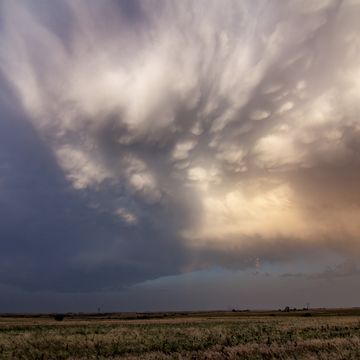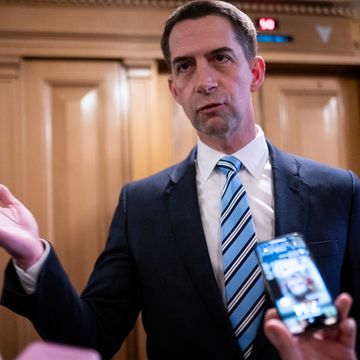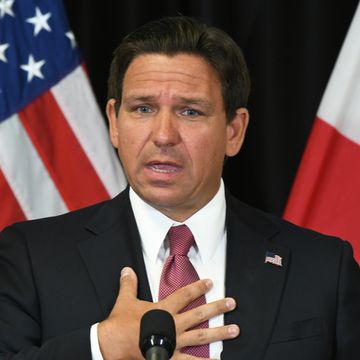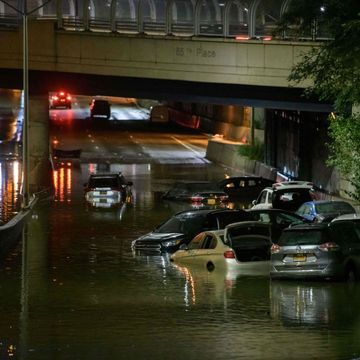Most of official Washington and its attendant media, is still congratulating itself on the Very Big Bill that got passed all the way through Congress a week or so back and that will be signed into law tomorrow by the president. Crucial to the passage of what is described as the largest investment the American government has made in fighting the climate crisis was a sudden change of heart by Sen. Joe Manchin (D-Bituminous).
So with all this good feeling swirling about, surely nobody will mind if Maury Johnson, a 62-year-old farmer from Monroe County, West Virginia, explains why he hasn’t gone Politico all over this landmark legislation.
From the invaluable Mountain State Spotlight:
Up until recently, the cinder-block well provided all the water for his house. But now, the groundwater is filled with sediment and Johnson is planning to fill the well with water from a nearby stream that’s less likely to fill up with dirt. “So what I gotta do, I gotta flush. I gotta pump. I’ll probably pump water for two hours,” he said of his plans for the upcoming weekend.
Johnson, 62, has lived on this farm almost his entire life, and still has big hopes for his land: He wants to attract the rusty patched bumble bee this season, and is growing a bounty of pumpkins, corn, and squash. But not being able to use his main source of water, something feels off.
Johnson’s bete noire is the Mountain Valley Pipeline, which is a particular darling of his senior U.S. senator, Joe Manchin. Manchin loves this pipeline, and he doesn’t love the fact that Johnson and other property owners, whose land was hijacked through eminent domain, managed to stall its construction for several years.
Now, Johnson dedicates the vast majority of his time documenting the pipeline’s land and water violations across Greenbrier, Summers and Monroe counties. For years, he and other pipeline opponents have stalled the project, which is planned to stretch 303 miles across West Virginia and into Virginia. Though construction is nearly complete, not counting the land restoration the company has to do, the pipeline is four years overdue and the cost has ballooned from $3.5 billion to $6.6 billion. This is largely because repeatedly, rulings from the 4th U.S. Circuit Court of Appeals have found that key aspects of the pipeline—its impact on water, endangered species, and national forests—don’t comply with the law.
Here is where things get very, very Washington. Did I mention that Joe Manchin was a crucial vote on the celebrated mega-bill that everyone loves? And did I mention as well that Joe Manchin loves himself some Mountain Valley Pipeline?
Watch how the sausage gets made.
In exchange for supporting the Democrats’ most recent climate and economy bill, Manchin got Democratic leaders’ support for a host of permitting changes. Among them was a directive for Congress to “require the relevant agencies to take all necessary actions to permit the construction and operation of the Mountain Valley Pipeline”, and to move all new legislation regarding the pipeline to the D.C. Circuit Court of Appeals, the pipeline’s preferred venue.
In short, Manchin exercised his own form of eminent domain over the Congress on behalf of his pet pipeline. I probably don’t need to mention that Manchin’s political donor lists are thick with executives of the pipeline industry, as well as the people who profit from the gas, goo, and gunk the pipelines carry.
Meanwhile, back in West Virginia…
In Summers County, Mark Jarrell is sitting in his living room on his 90-acre property. His house is the only structure on the expanse of land. “The fact is, I own this freakin’ place. Don’t I have any say so?” he asks, his voice echoing off of the metal-lined cathedral ceilings above him […] Jarrell remembers the day he woke up in the spring of 2018 and heard construction trucks on his property. Notably, he had not yet reached a settlement with the company. He soon settled with the company out of fear that if he didn’t, the pipeline would happen anyway and he’d be left without compensation. Now, there are 17 piles of rotting logs on Jarrell’s property — former trees that Mountain Valley Pipeline cut down during construction. He can’t remove the logs, because he can’t drive a vehicle over the rectangular land masses the company built in numerous places on his field to prevent erosion. In addition to the pipeline itself, it’s another way that his land doesn’t really feel like his.
Here’s the other thing: The Mountain View pipeline is part of a network for carbon capture and storage that the White House has called a “CO2 superhighway,” which is sold as revolutionary green technology but is based on capturing and transporting the carbon emissions from oil, coal and ethanol plants at a volume for which the technology is largely untested. And these are not pipelines that leak. These are pipelines that explode. Ask the folks in Satartia, Mississippi.
From Mississippi Today:
Confirming Denbury’s account of the event, PHMSA found that the pipeline broke from heavy pressure caused by movement in the soil after persisting heavy rain. But PHMSA also found that Denbury had, among other errors, failed to prepare for such natural hazards, failed to alert local emergency officials about the incident, and failed to educate nearby residents about the pipeline before the breach. In its report, the agency proposed a civil penalty of $3.9 million against Denbury, which the company can either accept or contest. As a result of the pipeline failure, PHMSA also announced it would begin a new rulemaking to update safety standards.
West Virginia’s had two very bad experiences with natural gas pipeline explosions in the past 10 years.
If the pipeline ever starts carrying gas, a scenario that’s played in the back of Jarrell’s mind will take on a new life. “I’m not gonna snap at this age,” he says as he motors his John Deere tractor up his property’s steep slope. “Unless …” He pauses. “Unless, for instance, say I ran down to the store when my granddaughter’s here and the explosion happens, she’s burned alive, and I’m not.”
Sometimes, it’s real people who get ground up in the sausage-making.

Charles P Pierce is the author of four books, most recently Idiot America, and has been a working journalist since 1976. He lives near Boston and has three children.













